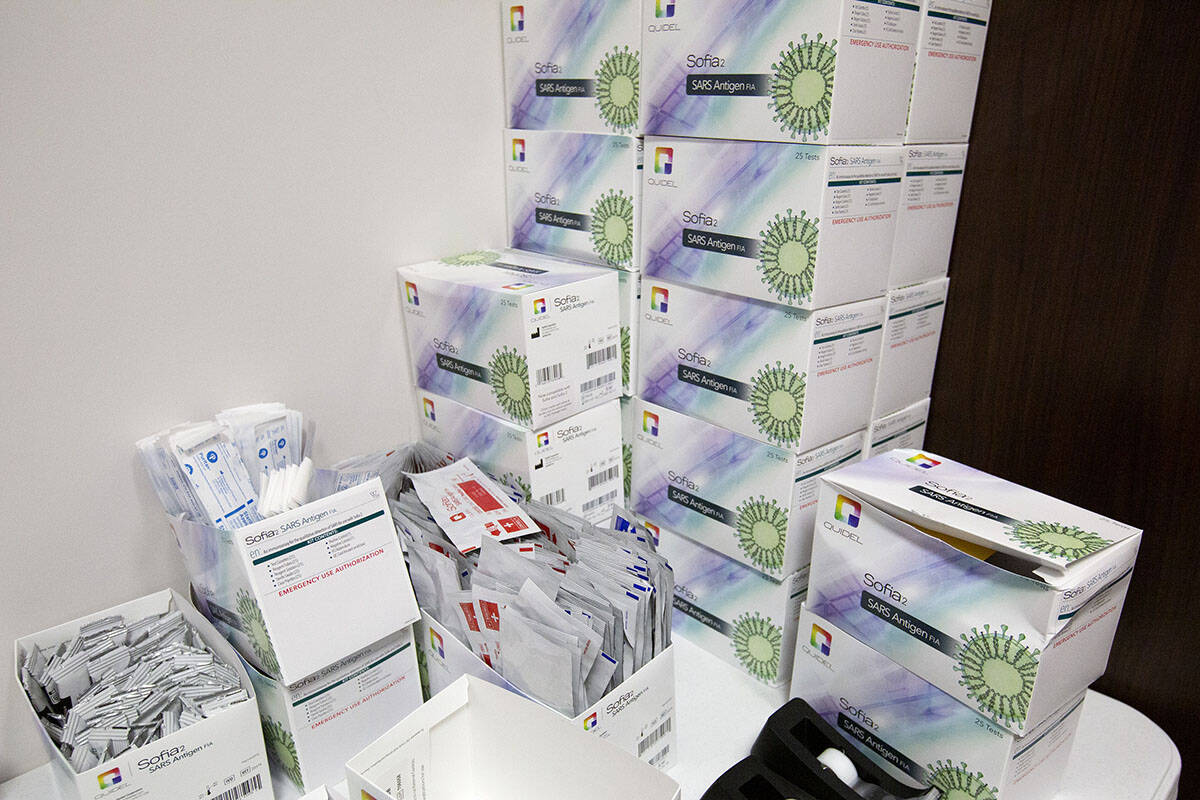How to get free at-home rapid COVID tests

The state of Nevada continues to expand the availability of free rapid tests as part of its strategy for taming COVID-19.
On Thursday, the Nevada Legislature’s Interim Finance Community approved $17.5 million to support testing operations, including the purchase of 1 million rapid tests for use in schools, long-term care facilities, correctional facilities, community-based testing sites and other health care settings, said Julia Peek, deputy administrator of the state’s Division of Public and Behavioral Health.
The move follows the state’s initial order of 600,00 rapid tests that residents have been able to pick up at sites across the state for use at home.
These expenditures are paid for through the federal pandemic relief funding of the American Rescue Plan Act.
The funds approved Thursday also will support the ongoing operations of a testing call center, Peek said during a biweekly COVID-19 briefing by state officials.
Call center workers can direct residents to convenient locations where they can pick up free rapid tests. They also can provide guidance on how to use the tests and help in interpreting results, she said.
“They can help you calculate an isolation period, assist you in notifying your close contacts and determine if you’re eligible for COVID therapeutics,” she said.
The call center operates from 7 a.m. to 8 p.m. seven days a week. Its number is 1-800-401-0946. Information on where to pick up rapid tests also is available at a state website, nvhealthresponse.nv.gov.
The state’s efforts in providing rapid tests supplement a federal program that offers eight free COVID-19 tests per household. These tests are available through a federal website, covid.gov/tests.
As of Jan. 15, the Biden administration began requiring insurance companies to cover the cost of eight at-home tests per individual per month. Consumers can obtain tests for free using their insurance at time of purchase or through reimbursement, depending on their insurer’s policy. On Monday, the administration announced that Americans with Medicare Part B also are eligible for eight tests per month.
The home rapid tests, which can be purchased online and at drug stores, have the advantage of giving results in minutes rather than days, the amount of time it typically takes to get back lab results on a PCR test.
But health authorities caution that the rapid tests are not as accurate as PCR tests at detecting an infection. When a rapid test is taken early on in an infection, before the virus has widely replicated, it may return a false negative. Authorities recommend that people who have been exposed to the virus take multiple tests over a few days, including three to five days after a possible exposure.
However, experts say that the rapid tests are very good at identifying people with high viral loads, who are those most likely to infect others. For this reason, some recommend taking a test immediately before visiting an elderly person, for example, or someone with a compromised immune system.
“Maybe right now we are not in a peak of COVID-19 infections, but we don’t know what to expect with this virus, as we have seen in the past,” said Julian Escutia, the consul of Mexico in Las Vegas. “So it is worth it and important to have these tests available whenever a person in the family has symptoms.” The consulate is distributing the rapid tests to anyone in the community.
Contact Mary Hynes at mhynes@reviewjournal.com or 702-383-0336. Follow @MaryHynes1 on Twitter.